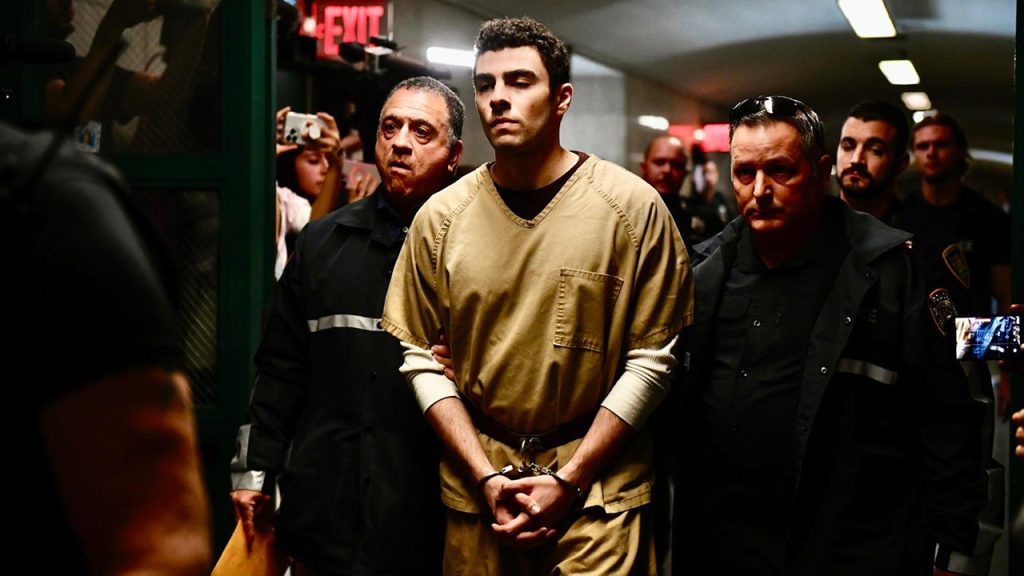Judge Dismisses Terrorism Charges in UnitedHealthcare CEO Assassination Case
In a significant development in the case against Luigi Mangione, the suspected assassin of UnitedHealthcare CEO Brian Thompson, a New York judge has dismissed the terrorism charges that had been filed by Manhattan District Attorney Alvin Bragg. Judge Gregory Carro issued a 12-page decision explaining that there was insufficient evidence to support the terrorism charge, stating, “There was no evidence presented of a desire to terrorize the public, inspire widespread fear, engage in a broader campaign of violence, or to conspire with organized terrorist groups.” The judge drew a clear distinction between Mangione’s alleged “heinous, but targeted and discrete killing of one person” and the broader acts of violence that the terrorism statute was designed to address. The dismissal of this charge means Mangione no longer faces life imprisonment without parole if convicted, though he could still receive life with the possibility of parole for the remaining charges.
The court’s decision comes at a troubling time, as authorities are warning of an increased risk to business leaders and political figures following a series of high-profile attacks. Just days before the hearing, Turning Point USA founder Charlie Kirk was fatally shot by a sniper during a public event at Utah Valley University in Utah. The NYPD’s Counterterrorism and Intelligence Bureau has issued warnings that individuals in the public eye “remain vulnerable at open-air speaking engagements and public events, which have been targeted by malicious actors seeking to advance political or ideological agendas.” Security measures have visibly increased around Manhattan, particularly at the Blackstone building, where a separate incident in July resulted in four deaths. The proximity of these events has raised concerns about potential copycat violence and a broader pattern of targeted attacks against public figures.
The allegations against Mangione are particularly disturbing, as prosecutors claim he stalked and ambushed Thompson, who was visiting New York City for an investor conference. Thompson, a 50-year-old married father of two from Minnesota, had dedicated 20 years to UnitedHealth Group and had been appointed CEO of the UnitedHealthcare subsidiary in April 2021. Investigators found messages written on shell casings at the crime scene, a detail that bears an eerie similarity to the Kirk murder case, where the suspected assassin allegedly etched memes and anti-fascist rhetoric onto cartridges. These parallels have intensified concerns about what Kirk himself had warned of as an emerging “assassination culture” in American society before his own tragic death.
Despite the gravity of the charges against him, Mangione has attracted a surprising level of public support. At court appearances, supporters dressed as the character Luigi from “Super Mario Bros.” have gathered outside the courthouse, carrying anti-fascist signs and calling for his release. They celebrated when news of the terrorism charge dismissal was announced. Court officers previously intercepted a heart-shaped note addressed to Mangione that had been smuggled into the building, highlighting the unusual nature of the public response to this case. Mangione, described as an Ivy League-educated member of a wealthy Maryland family, has pleaded not guilty to the remaining state charges in New York, which include murder, though he still faces stalking charges at the federal level and firearms and forgery charges in Pennsylvania, where he was arrested.
The judge’s decision to dismiss the terrorism charge has broader implications for how similar cases might be prosecuted in the future. Judge Carro declined to rule on other pending motions, including whether Mangione is facing double jeopardy or on the legality of a controversial subpoena to his health insurance provider, Aetna. These unresolved legal questions, along with Mangione’s next scheduled court appearance on December 1, suggest that this case will continue to evolve. The decision underscores the specific legal definitions and evidence standards required for terrorism charges, even in cases involving high-profile victims and premeditated violence. Prosecutors will now need to focus their case on the remaining charges, which still carry significant penalties if Mangione is convicted.
The paired tragedies of Thompson’s assassination and Kirk’s murder just days apart have sparked serious conversations about the safety of public figures and the increasingly violent political climate in America. Kirk had specifically warned about the dangers of an “assassination culture” in the months before his death, a concern now being echoed by security researchers and law enforcement. The NYPD’s threat assessment specifically mentions actors who may be “seeking to advance political or ideological agendas and/or draw attention to unique personal grievances through violence.” This warning, coupled with the visible increase in security measures around New York City, reflects a growing recognition that targeted violence against prominent individuals represents a distinct threat pattern that requires specific preventative strategies beyond those traditionally employed for random mass violence incidents.
As this case proceeds, it stands as a sobering reminder of the real human cost behind the headlines. Thompson, who spent two decades building his career and had recently reached the pinnacle of corporate leadership, leaves behind a family and community in mourning. The decision to dismiss the terrorism charge does not diminish the severity of the crime alleged or the profound loss experienced by Thompson’s loved ones. Rather, it represents the court’s determination to apply the law as written, even in highly charged cases that capture national attention. Meanwhile, the alarming support Mangione has received online and outside the courthouse raises difficult questions about how society responds to political violence and the extent to which ideological motivations may be normalizing or even glorifying targeted attacks against public figures perceived as representing opposing viewpoints or institutions.







